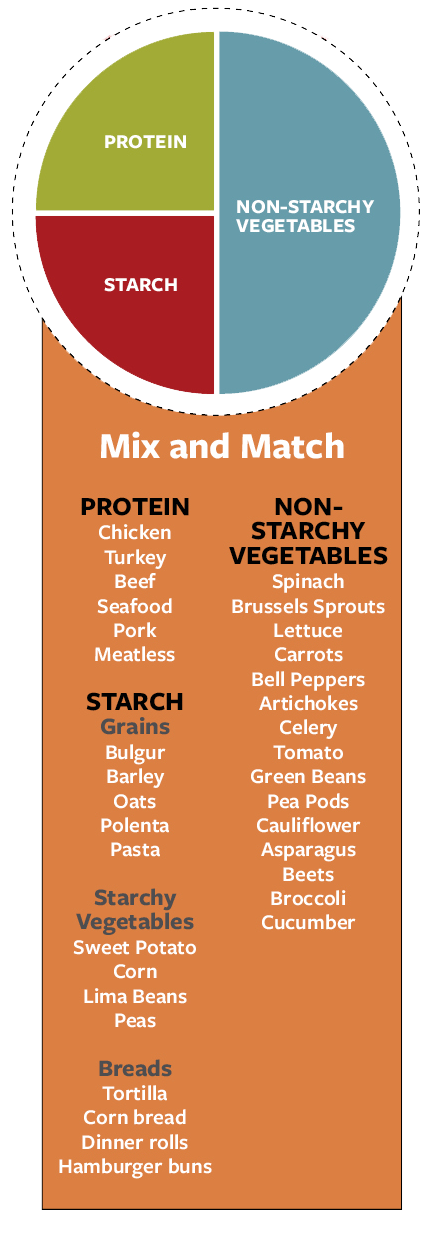
Use these steps as a guide to build an ideal meal. Not only will this model help keep portions in check, it will help you make smart decisions for managing blood glucose levels.
1
Draw a vertical line down the middle of your plate.
On one of the halves, draw a horizontal line to cut one side in half. Now you should have 3 parts total.
2
Fill the largest with non-starchy vegetables.
Spinach, Brussels sprouts, lettuce, carrots, bell peppers, artichokes, celery, tomato, green beans, pea pods, cauliflower, asparagus, beets, broccoli and cucumber make great options.
3
In one of the small sections, place starchy food.
Whole grain breads, oats, barley, bulgur, polenta, pasta, rice, cooked beans, squash, sweet potatoes, corn, lima beans, peas, low-fat crackers, pretzels, fat-free popcorn are examples.
4
In the other small section, put your protein.
Try chicken, turkey, fish, shrimp, clams, crab, lean beef, pork loin, tofu, eggs, low-fat cheese.
5
Add an 8-ounce glass of nonfat or low-fat milk.
You can also add another small serving of carbohydrates like a small roll or 6 ounces of low-fat yogurt.
6
Add a piece of fruit or 1/2 cup of fruit salad.
Fresh fruit makes a great dessert after any meal!

For more tools and resources, visit The American Diabetes Association at diabetes.org.